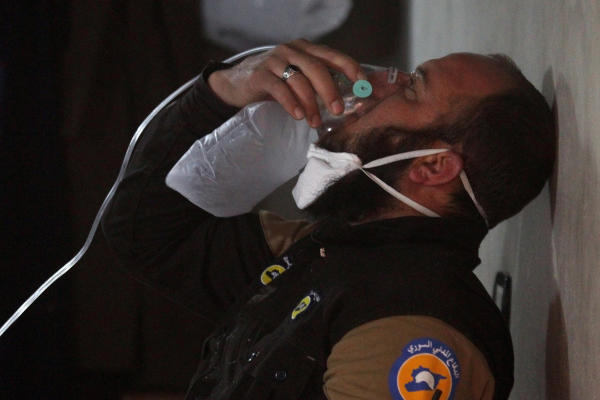Beirut – Regional Director for the Near and Middle East at the International Committee of the Red Cross, Robert Mardini stressed the need for the warring parties in Syria to respect the International Humanitarian Law, which is the most important demand in protecting civilians in the conflict.
He told Asharq Al-Awsat: “The greatest tragedy is now Syria and it may get even worse if efforts are not exerted to prevent that.”
“The humanitarian situation is deteriorating dramatically and international organizations need more aid, worth billions of dollars, in order to properly perform their duties, such as providing food and medicine,” he explained.
At a time when the country was still reeling from Tuesday’s gas attack in the rebel-held province of Idlib, Mardini highlighted the importance of protecting hospitals and medical staff.
“Nothing justifies the use of chemical weapons that are barred by international law,” he stated.
On the attack, he said that the ICRC “has not yet received accurate information on it because the Red Cross is not present in Idlib due to the ongoing battles.”
At least 72 people were killed, many of them children, in a gas attack on the town of Khan Sheikhoun on Tuesday. US intelligence officials, based on a preliminary assessment, said the deaths were most likely caused by sarin nerve gas dropped by Syrian aircraft.
Commenting on the refugee crisis sparked by the six-year Syria war, Mardini remarked that despite the social and economic hardships the displaced are facing, especially in Lebanon and Jordan, they are better off than those still in Syria.
Solving the refugee problem in host countries primarily lies in increasing various aid and working on long-term plans. He noted that aid is actually being reduced, instead of being raised, which could turn into a humanitarian crisis.
The ICRC official estimated that there are around six million refugees inside of Syria. The United Nations announced that it needs 8.1 billion dollars to tackle the refugee crisis in 2017.
He revealed that the ICRC, in collaboration with its partners, including the Syrian Red Crescent, succeeded in entering besieged areas in Syria.
“We are working with all parties without discrimination,” Mardini stressed.
